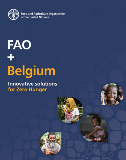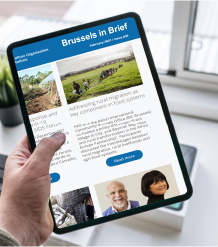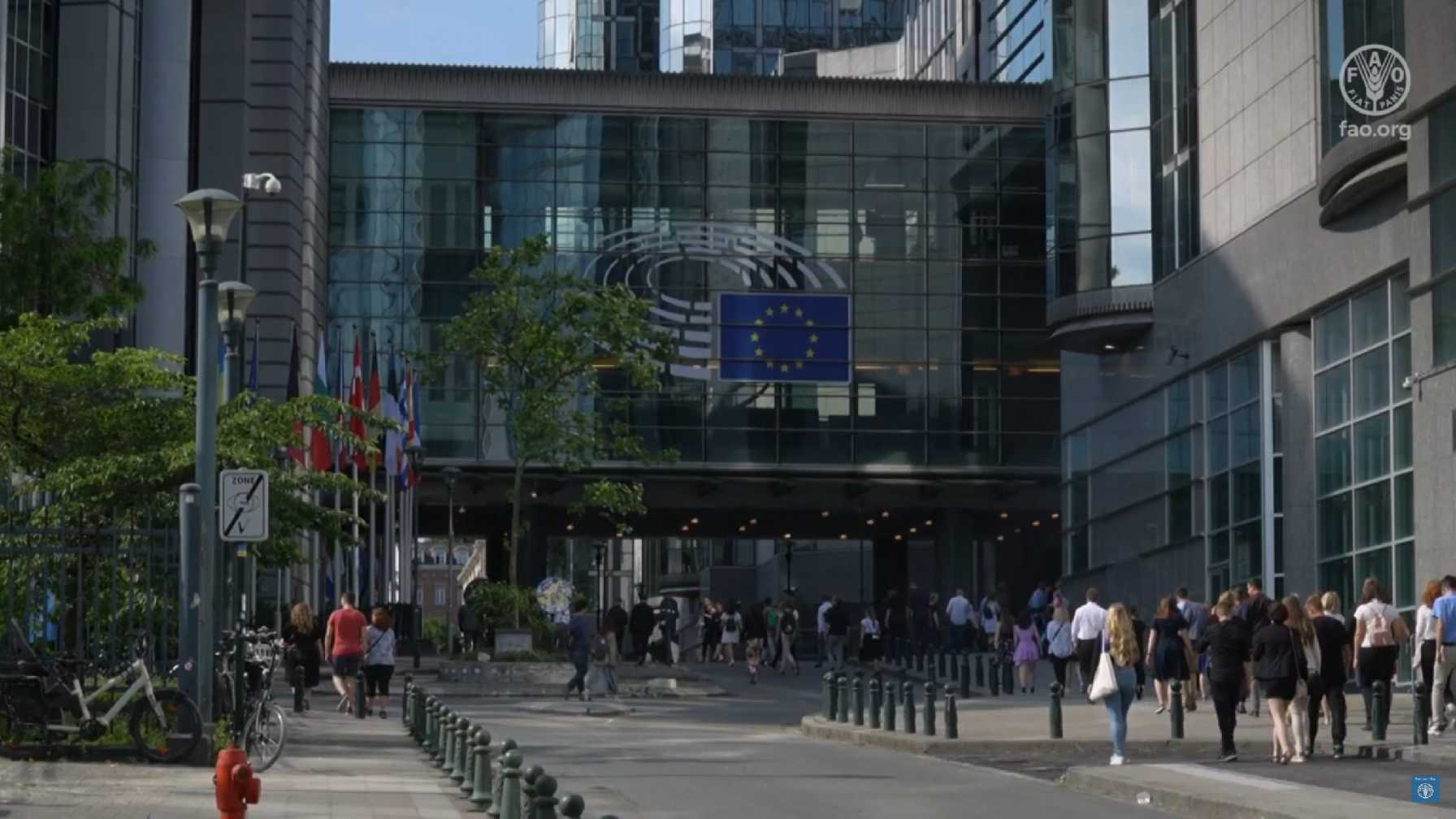Resources

FAO + European Union: Investing in a sustainable and food secure future
06/05/2021
In 1991, the European Union (EU) became the 161st Member of the Food and Agriculture Organization of the United Nations (FAO), marking an institutional breakthrough: it was the first time that FAO welcomed a Member Organization. The EU–FAO partnership has since been sound and growing, as evidenced by the upward trend of the EU’s voluntary contributions1 in recent years. This has enabled FAO to work extensively across the globe and in those regions where assistance is most needed.

Global Report on Food Crises 2021
05/05/2021
The number of people facing acute food insecurity and needing urgent life and livelihood-saving assistance has hit a five-year high in 2020 in countries beset by food crises, an annual report launched by the Global Network Against Food Crises (GNAFC) - an international alliance of the UN, the EU, governmental and non-governmental agencies working to tackle food crises together - has found.

The State of Food and Agriculture 2020: Overcoming water challenges in agriculture
26/11/2020
The State of Food and Agriculture 2020 presents new estimates on the pervasiveness of water scarcity in irrigated agriculture and of water shortages in rainfed agriculture, as well as on the number of people affected. It finds major differences across countries, and also substantial spatial variation within countries. This evidence informs a discussion of how countries may determine appropriate policies and interventions, depending on the nature and magnitude of the problem, but also on other factors such as the type of agricultural production system and countries’ level of development and their political structures. Based on this, the publication provides guidance on how countries can prioritize policies and interventions to overcome water constraints in agriculture, while ensuring efficient, sustainable and equitable access to water.

FAO-WFP Early warning analysis of acute food insecurity hotspots
30/10/2020
The report raises an early warning on 20 countries and situations that are likely to face further deterioration of acute food insecurity over the next three to six months. Projections are based on the analysis of a multiplicity of interlinked drivers, including economic shocks, adverse climate conditions and weather shocks, conflict and insecurity, political instability, diffusion of plant pests and animal diseases, and the socio-economic impacts of COVID-19.

The State of Agricultural Commodity Markets 2020
23/09/2020
The State of Agricultural Commodity Markets 2020 (SOCO 2020) aims to discuss policies and mechanisms that promote sustainable outcomes – economic, social and environmental – in agricultural and food markets, both global and domestic. The analysis is organized along the trends and challenges that lie at the heart of global discussions on trade and development. These include the evolution of trade and markets; the emergence of global value chains in food and agriculture; the extent to which smallholder farmers in developing countries participate in value chains and markets; and the transformative impacts of digital technology on markets.

FAO + Belgium: Innovative Solutions for Zero Hunger
04/09/2020
Belgium is a key strategic partner for the Food and Agriculture Organization of the United Nations (FAO), supporting the Organization’s mandate for both humanitarian and development activities. The country is generously funding innovative and critical areas in support of food security, economic growth, employment and income generation to foster resilient and sustainable development, in addition to hosting the FAO Liaison Office in Brussels. The strategic alignment between Belgium’s and FAO’s priorities is strong, and is the foundation of the partnership.

The European Parliamentary Alliance against Hunger and Malnutrition
27/08/2020
The European Parliamentary Alliance against Hunger and Malnutrition, established in 2016, has been and will continue to be instrumental in connecting Members of the European Parliament and in enabling them to engage actively in the fight against hunger and malnutrition. The Alliance provides a platform for policy dialogue and awareness-raising on the right to adequate food for all; on the eradication of hunger, food insecurity and malnutrition; and on making agriculture more sustainable and resilient. FAO, which acts as Secretariat of the Alliance, will support its future activities and will work tirelessly with the European Parliamentarians and other partners on making sure the world has enough good and nutritious food.
This brochure describes the activities of the Alliance in Brussels and beyond and is being used to engage, inform and attract more Parliamentarians to join the Alliance.

The State of Food Security and Nutrition in the World
13/07/2020
Five years after the world committed to end hunger, food insecurity and all forms of malnutrition, we are still off track to achieve this objective by 2030. Data tell us that the world is progressing neither towards SDG target 2.1, of ensuring access to safe, nutritious and sufficient food for all people all year round, nor towards target 2.2, of eradicating all forms of malnutrition.
There are many threats to progress. The 2017 and 2018 editions of this report showed that conflict and climate variability and extremes undermine efforts to end hunger, food insecurity and malnutrition. In 2019, the report showed that economic slowdowns and downturns also undercut these efforts. In 2020, the COVID-19 pandemic, as well as unprecedented desert locust outbreaks in Eastern Africa, are obscuring economic prospects in ways no one could have anticipated, and the situation may only get worse if we do not act urgently and take unprecedented action.

Previous newsletters
2024: January, February, April, May, June, July
2023: January, February, March, April, May, June, July, October, November
2022: January, February, March, April, May, June, July, September, October, November, December
2021: January, February, March, April, May, June, July, September, October, November, December
2020: January, February, March, April, May, June, July, September, October, November, December
2019: January, February, March, April, May, June, July, September, October, November, December
2018: April, May, June, July, September, October, November, December



